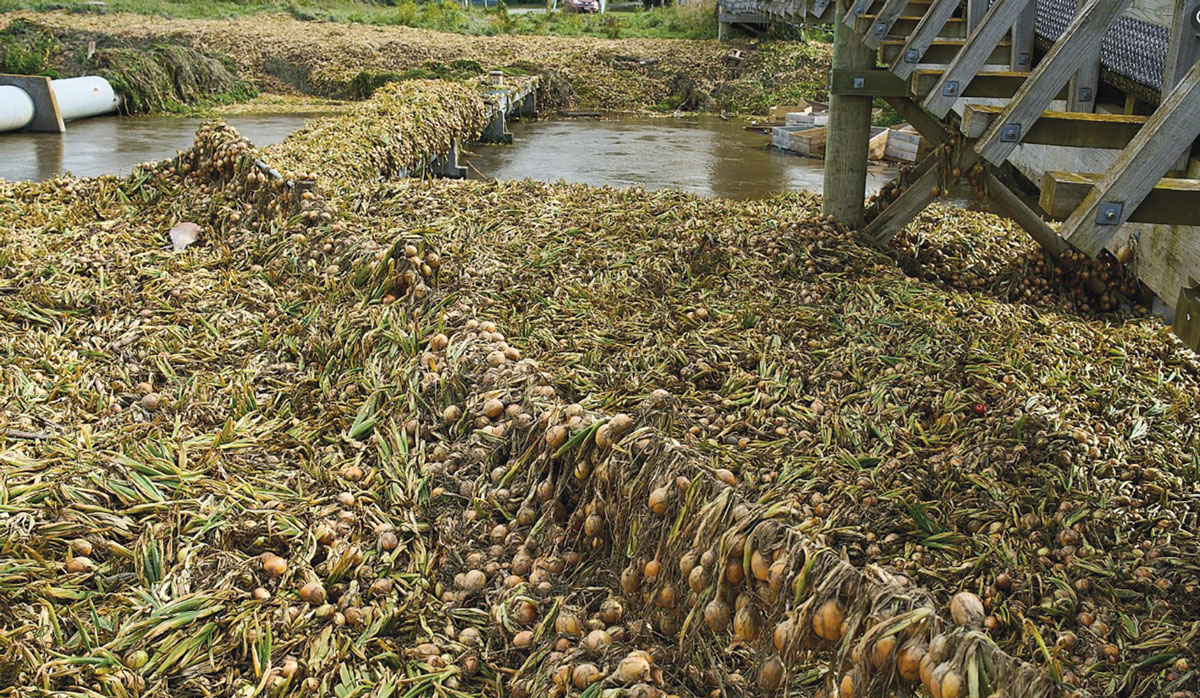Fruit fly discovery puts growers, exporters on edge
Fruit growers and exporters are worried following the discovery of a male Queensland fruit fly in Auckland this week.
Don't forget East Coast growers hit by Cyclone Gabrielle one year ago.
That’s the message for the Government from Horticulture New Zealand chief executive Nadine Tunley.
The cyclone wreaked devastation upon growing areas across the Hawke’s Bay, Tairāwhiti Gisborne, Northland, Bay of Plenty, Wairarapa and northern Manawatū last February with many growers still rebuilding their businesses.
“We must not forget those still working to recover and focus on building resilience to such extreme weather events,” says Tunley.
“For many growers, the rebuild and renewal process will take many years and the investment required to enable these regions to once again thrive will be massive.”
HortNZ wants the Government to press ahead with its 100 Day Plan, including meeting councils and communities to establish regional requirements for the recovery from Cyclone Gabrielle.
It also wants the Government to make good on its pledge to use additional Orders in Council to speed up cyclone and flood recovery efforts.
“The industry and the communities across these regions have made remarkable progress but more help is needed,” says Tunley.
“Stakeholders across the sectors continue to work together to meet the immediate necessities and ensure the long-term recovery of impacted areas.
“As the frequency and severity of adverse weather events increase, steps to mitigate or reduce damage have become even more crucial.”
The hort sector wants to see changes to various policy settings, including a whole of catchment approach to flood protection and water use.
“We want highly productive land protected for primary production and primary production prioritised on highly productive land,” says Tunley.
“This approach would see more bush on hill country, fewer houses in flood prone valleys, and more water storage throughout the catchment.
 |
|---|
|
Onions among the debris in and around Karamu Stream, near Whakatu a rural community in Hastings after Cyclone Gabrielle last year. Photo Credit: Mark Sudfelt. |
“Prioritising highly productive land for primary production requires maintaining flexibility of land use and providing reliable access to water, supported by consenting timeframes that enable growers to invest in using and sharing water in the most efficient and sustainable ways.”
Tunley believes all of these steps will further support the process of recovery and development of the industry in the most severely affected areas.
“The level of indebtedness means the East Coast region has a huge mountain to climb. We may also face another significant economic or geopolitical shock in the next decade.
“That means some innovative solutions are needed. Some growers have told me they would like the government to put in place a model that engages the private sector through targeted incentives.
“This could include easing of overseas investment rules for investment in affected businesses, the ability to retain tax losses on all restructuring of affected businesses and tax write offs on all cyclone related capital purchases over five years. Nothing should be off the table.”
Tunley points out that the horticulture sector plays a critical role – employing over 40,000 people.
The benefits from growing operations flow out into the wider community in so many of our rural and often remote communities, she says.
“On a national level, it makes a significant contribution to growing a prosperous and sustainable economy, exporting to 125 markets, while ensuring food security for New Zealanders.”
One of New Zealand’s longest-running pasture growth monitoring projects will continue, even as its long-time champion steps away after more than five decades of involvement.
The Insurance & Financial Services Ombudsmen Scheme (IFSO Scheme) is advising consumers to prepare for delays as insurers respond to a high volume of claims following this week's severe weather.
Additional reductions to costs for forest owners in the Emissions Trading Scheme Registry (ETS) have been announced by the Government.
Animal welfare is of paramount importance to New Zealand's dairy industry, with consumers increasingly interested in how food is produced, not just the quality of the final product.
Agriculture and Forestry Minister Todd McClay is encouraging farmers and growers to stay up to date with weather warnings and seek support should they need it.
The closure of SH2 Waioweka Gorge could result in significant delays and additional costs for freight customers around the Upper North Island, says Transporting New Zealand.